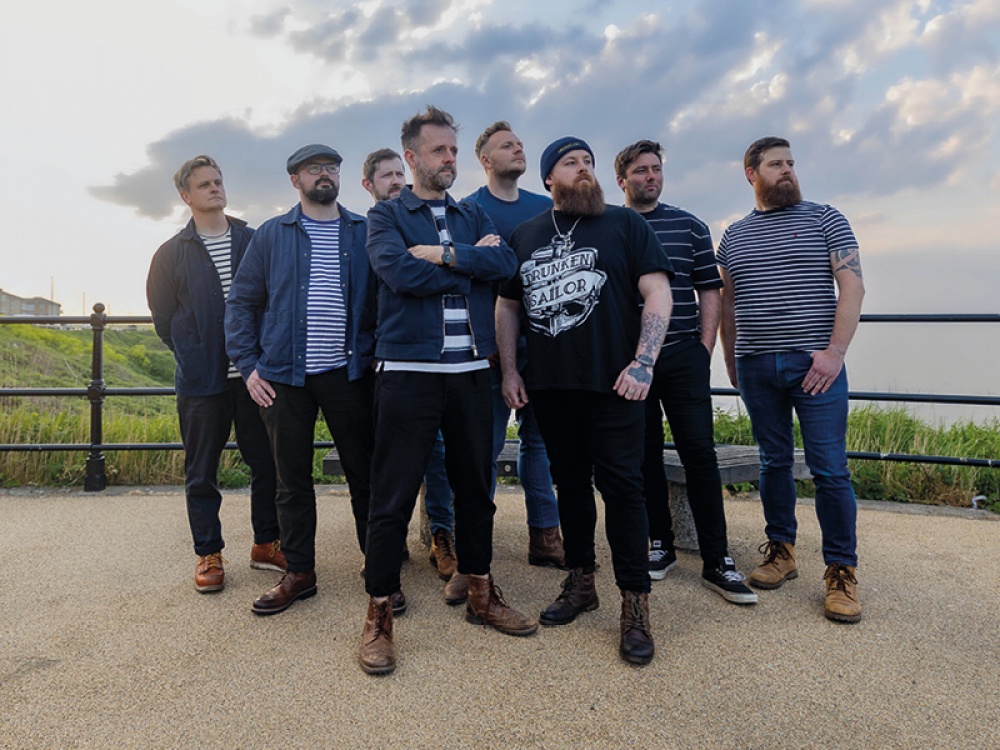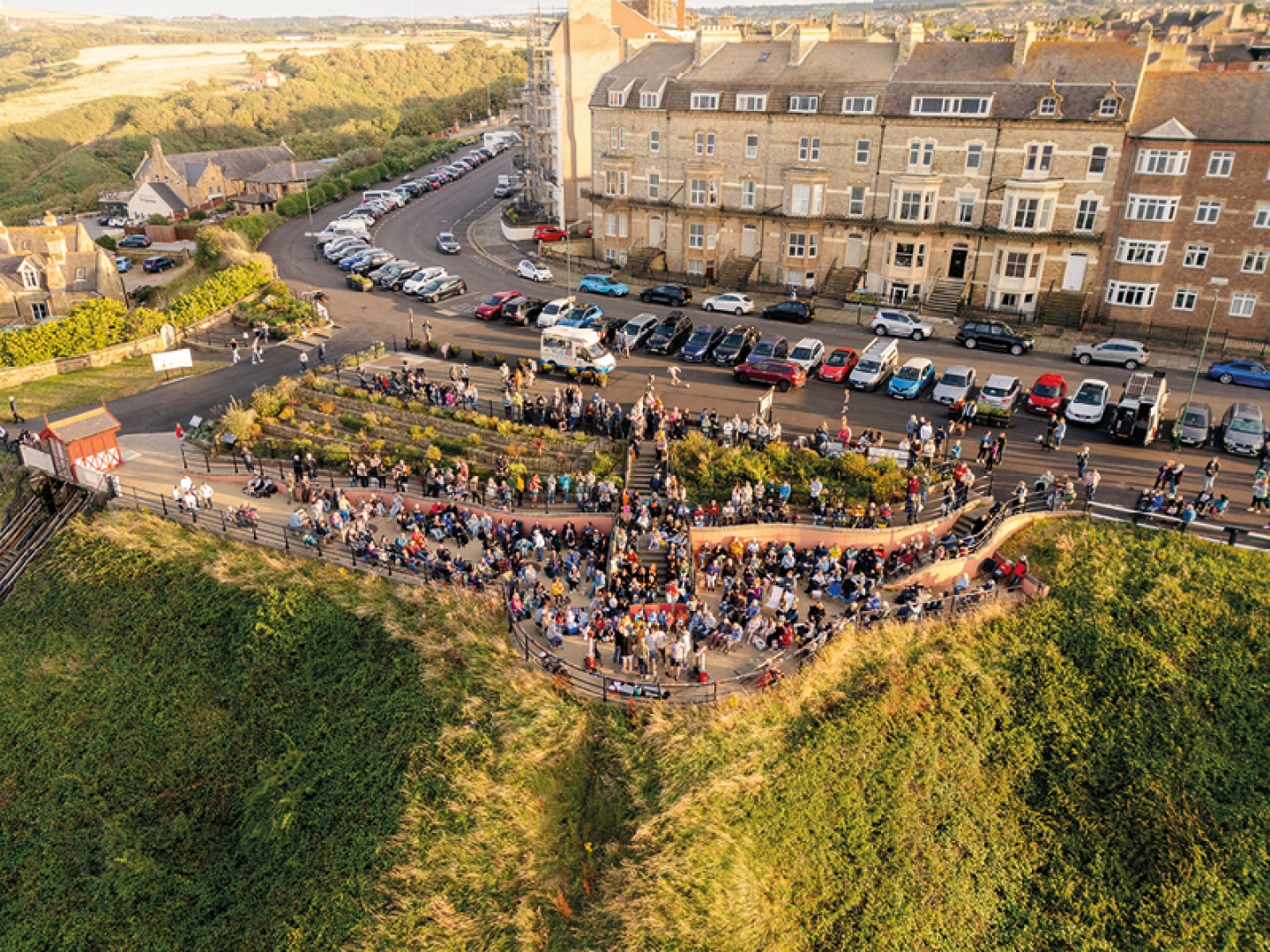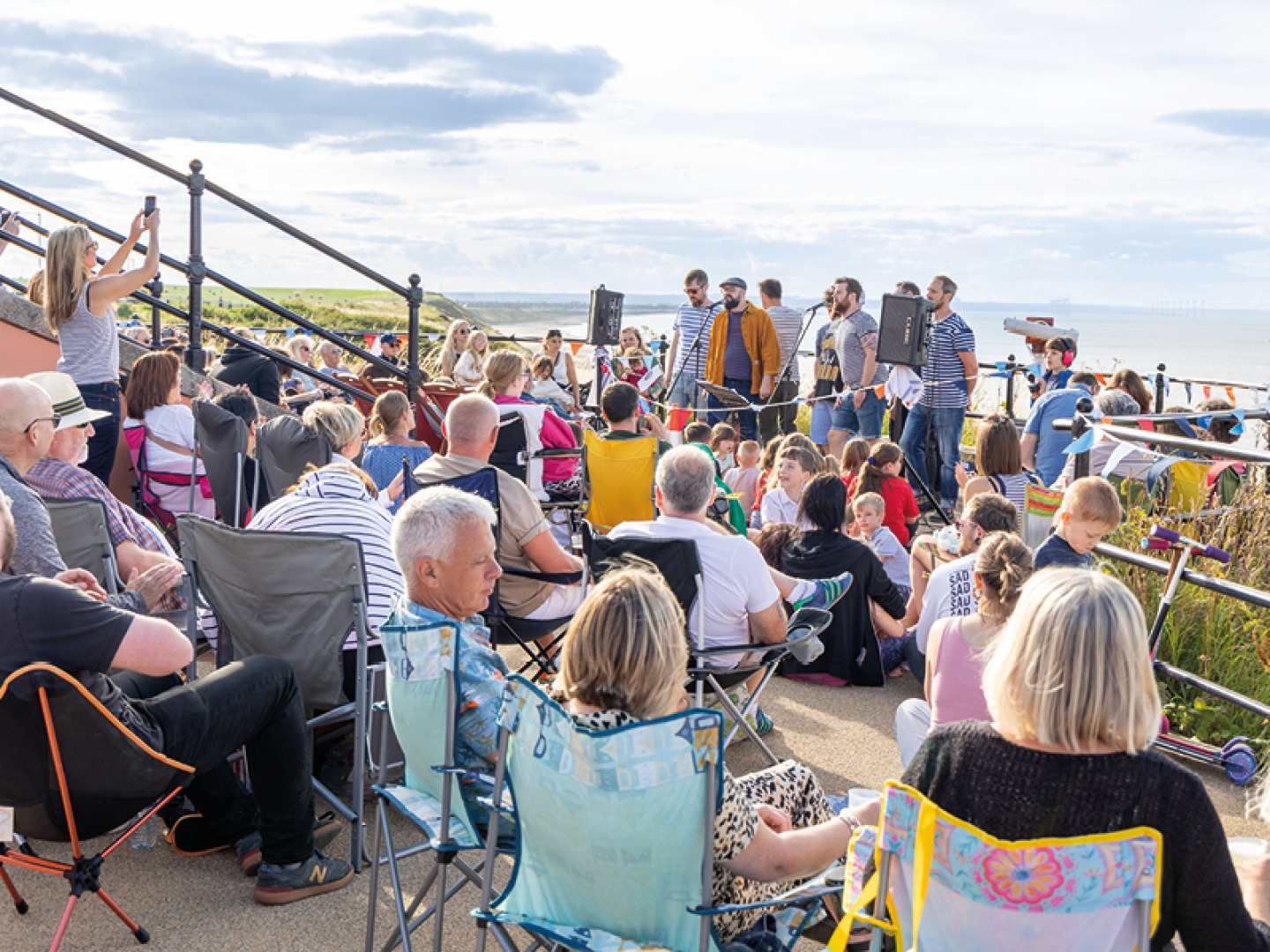How Sea Shanties Have Been Brought Back to Saltburn

Saltburn Smugglers are keeping the legacy of sea shanties alive by teaching the music to children
Sea shanties as we know them originated in the 19th century, but it’s thought that these catchy, traditional folk songs were being sung long before then, originally by sailors and primarily on ships. The Drunken Sailor is arguably the most popular shanty and given our seafaring history, shanties are a key part of our heritage, although less popular now despite the hype that followed Wellerman by Nathan Evans in 2021. That’s something Keith Ayling found when he moved to Saltburn around four years ago. He’s a professor of songwriting at Leeds Conservatoire and has worked in the music industry for more than three decades.
‘I’ve never worked in the realm of shanty music before but we discovered that there was a shanty group about five miles down the road in Redcar, and one in the village of Staithes in the other direction, and both of these groups had been around for a long time,’ says Keith. ‘I thought, there’s room for us to do something in Saltburn, but only if we do it differently! We wanted to modernise it a little bit and write our own shanties, so there was a lot of new material rather than just singing old songs. The other reason for starting Saltburn Smugglers was that a group of us got together and we were talking about mental health, and having worked with singing for a long time, I know that it has benefits which are emotional, spiritual, physical, and of course mental. It’s really valuable for that. We got together as a group and started singing – and we loved it so much we came up with a name. From a very simple gig about three years ago it’s grown and grown. There’s 10 of us now and we rehearse every week and write new songs. The invitations we’ve been getting have been amazing. In the last nine months every concert we’ve done has sold out.’


While shanties are likely to have originated at sea, they found their way into other industries, Keith has discovered. ‘Shanties were sung in factories 150 years ago, in fields within agricultural groups, and they were sung in shipbuilding,’ he explains. ‘They come from a time when manual labour was more prevalent, and singing helped people get on with that. How we explain it to children is that, now, a good example of when you would hear this kind of singing is at a football match, when the crowd sings together and they feel they’re supporting their team as one. It brings unity to the supporters but that was the basis of sea shanties – they encouraged crews to feel as one but also helped with the efficiency of the job they were doing.’
Keith has come to realise he might have more of a connection to sea shanties than he first thought. ‘I found out that my great grandfather was a Salvation Army hymn writer and the Salvation Army were one of the only churches who actually went into pubs and on the streets singing 150 years ago,’ he says. ‘When sea shanties were being brought back from the sea and being sung in pubs in Whitby, Staithes and all the ports, they started singing the songs on land and the Salvation Army were there listening to them – and borrowed some of the melodies and took them into the church because they saw people loving the tunes. At that time, the melodies were being swapped backwards and forwards, from churches to pubs to ships and the melodies and lyrics were rewritten. There’s quite a few famous shanties, one or two that we sing, that clearly have a quite spiritual edge to them because some of the words remain from the Salvation Army. Sadly, we don’t sing in public as much anymore in this country, and we don’t want any of that history to get lost.’
That’s precisely why Saltburn Smugglers are keeping sea shanties alive through their performances, workshops and shanty songwriting. ‘We were doing concerts on the promenade called Shanties on the Shore and a lot of people coming were families with younger children,’ Keith explains. ‘They [the children] were getting really excited and asking if they could join. We thought, we need to have an outlet to enable children to learn these songs, and even write their own songs, and just have some fun. So we started choir sessions, and we now run those every week, and children have written their own song – which is now one of our best songs! They now also get a chance to perform with us at some of our concerts on big stages too. They love that. It’s been great.’
More local schools reached out and asked if Saltburn Smugglers could run workshops based on what they do with the choir. ‘We’ve just been to a school in Goathland and done a morning of workshops where we did some vocal warm ups, sang some classic shanties and taught them about the history of shanties, and then they wrote their own,’ says Keith. ‘That’ll be sung at a leaving assembly. And now we are working with Scout clubs, Cubs and Brownies.
‘With schools, we just want to keep going – the broader aim is to increase music in schools. Teachers are not as musically aware as they used to be and there’s less singing. Sometimes you go into schools and they don’t even have a piano because there isn’t a teacher to play it. Music is so important and has many transferrable skills into other subjects. It’s great for Maths and English and understanding how sounds work, as well as building performance skills and confidence.
‘From the Smugglers’ point of view, at the moment we’re getting too many invitations and we can’t fulfil them all. We want to keep singing in theatres, and next year we’re hoping to record an album. At the moment we’re recording live singles [the group have also recorded a set of songs inside local historic RNLI lifeboat stations] and in 2026 we’re hoping to get into a studio.’










